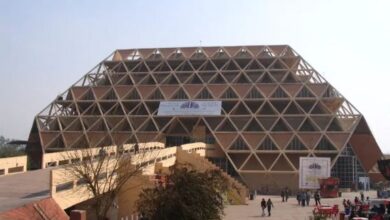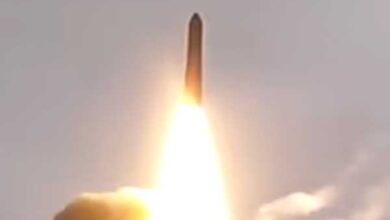Elon eyes on India: Musk’s SpaceX controls 60% share of global launch biz

New Delhi, July 17 : Elon Musk-run SpaceX now controls 60 per cent share of the global launch business, as he aims to bring Starlink, which uses low-orbit satellites to provide broadband internet connections, to India.
This year, the company had already put more than 1,000 satellites in orbit till June, Nikkei Asia reported on Monday.
“It now accounts for more than 60 per cent of satellites launched worldwide, according to the data from Jonathan McDowell, an astrophysicist at the Harvard-Smithsonian Center for Astrophysics,” the report said.
SpaceX has sent nearly 5,000 satellites to space since 2019 and has applied for permission to operate a total of 42,000. A single SpaceX rocket can carry as many as 60 satellites at once.
After meeting Prime Minister Narendra Modi in the US last month, Musk said the country is great for solar energy investment.
“India is great for solar energy investment. We are also hoping to bring Starlink internet to India. I am incredibly excited about the future of India. I think India has more promise than any large country in the world,” he told reporters after the meeting.
Musk said improved internet connectivity “can be incredibly helpful” in remote villages with poor broadband access.
Indian space sector startup Azista BST Aerospace Pvt Ltd’s first remote sensing satellite ABA First Runner (AFR) was successfully orbited by SpaceX’s Falcon 9 rocket last month. According to SpaceX, the rocket on a dedicated rideshare mission carried 72 spacecraft that includes CubeSats, MicroSats and others and one of them was the Ahmedabad-based Azista BST Aerospace’s 80 kg satellite AFR.
Azista BST Aerospace is an Indo-German satellite manufacturing joint venture floated by India’s Azista Industries Pvt. Ltd (holding 70 per cent stake) and Berlin Space Technologies GmbH (holding 30 per cent stake).
Last month, SpaceX successfully deployed Indonesia’s new communications satellite into orbit.
According to The Jakarta Post, the $550 million spacecraft “is envisioned to boost connectivity inclusion in the country, providing free Internet connection to 150,000 public facilities, including schools, regional government offices and health facilities”.






